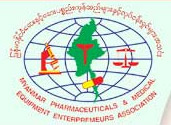Arts
Turnery
- Details
- Hits: 1836
Turnery
A turnery workshop does not need to be a big one. It is more like a family business in Bago. The minimum work force is about ten workers-five turners and five who do finishing work. Although woodcarving is a more popular handicraft than turnery, it is the latter craft from which many small Myanmar souvenirs are made.
Turnery is the process of making spindles, legs for furniture and other small items on a lathe, which is a machine on which a piece of wood, metal or another material is rapidly spun and shaped using a cutting tool.
Many turnery souvenirs are items suited to practical applications, such as vases, kitchen utensils and containers, but the beauty with which they are made also suggests decorative uses.
While the lathe plays a key role in making turnery products, like all handicrafts, human skill is also important. In fact, turnery can be seen as collaboration between a simple machine and a skilled artisan. Skilled turners are defined by precision, patience and experience. With the help of the lathe, they are able work quickly and create large quantities of products in a short time.
Bago, located 80 kilometres north of Yangon, is the main source of turnery products in Myanmar. Many turnery workshops are located throughout the town, at which a wide variety of souvenirs are made for both domestic and export markets. The roofed passageways leading up to Bago’s many historic pagodas are lined with handicraft shops selling wooden toys, flower vases, boxes and bowls of different shapes and sizes, pens and many other items made at these turneries.
Turnery workshops do not need to be big to be productive. Most of them are run like family businesses with a minimum staff of about 10
workers: five turners and five who do the finishing work.
Many different kinds of wood are used to make turnery products, although unlike other handicrafts in Myanmar, teak is rarely used. Turners prefer wood with more attractive, eye-catching colours. Favourites include pale yamanee wood, which is similar to oak, and
dark brown thinwin wood.
Even more desirable is wood from padauk trees, with its reddish colour, straight grain and even texture. Burl wood from these trees, which
is hard to find and therefore very expensive, is considered especially striking, with its nice pattern and beautiful colour combinations.
Making a turnery product requires several steps. First, the turner creates the basic shape from raw wood using the lathe. Rough edges are removed before turning is complete. The piece is then taken off the machine and handed over to a finisher, who uses sandpaper to complete the smoothing process. Something like a cheroot holder requires plenty of skill and patience due to its difficult shape. The long, narrow container needs to be smooth inside and outside.
After that, the piece is nearly done, requiring only a few finishing touches. When the desired shape is achieved, the piece is covered with a base primer. Then a polisher covers it with two coats of lacquer to create a beautiful souvenir from Myanmar.
Author by Myat Noe (SweSone Yangon Inflight Magazine)





